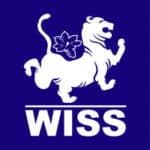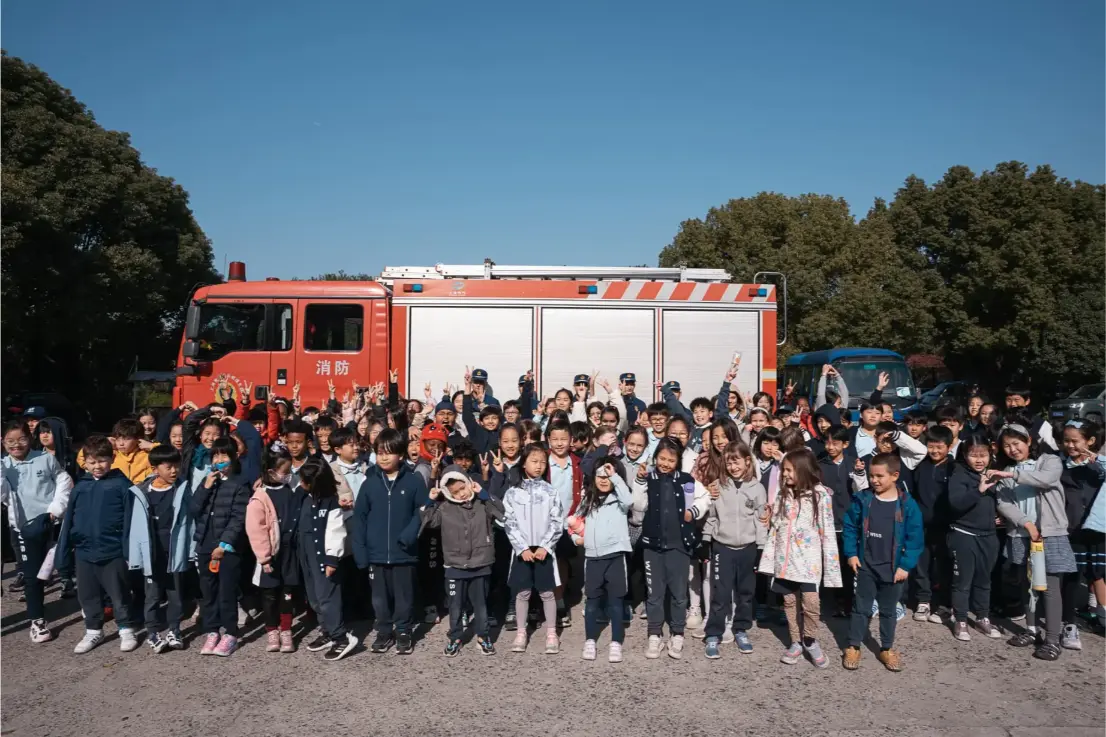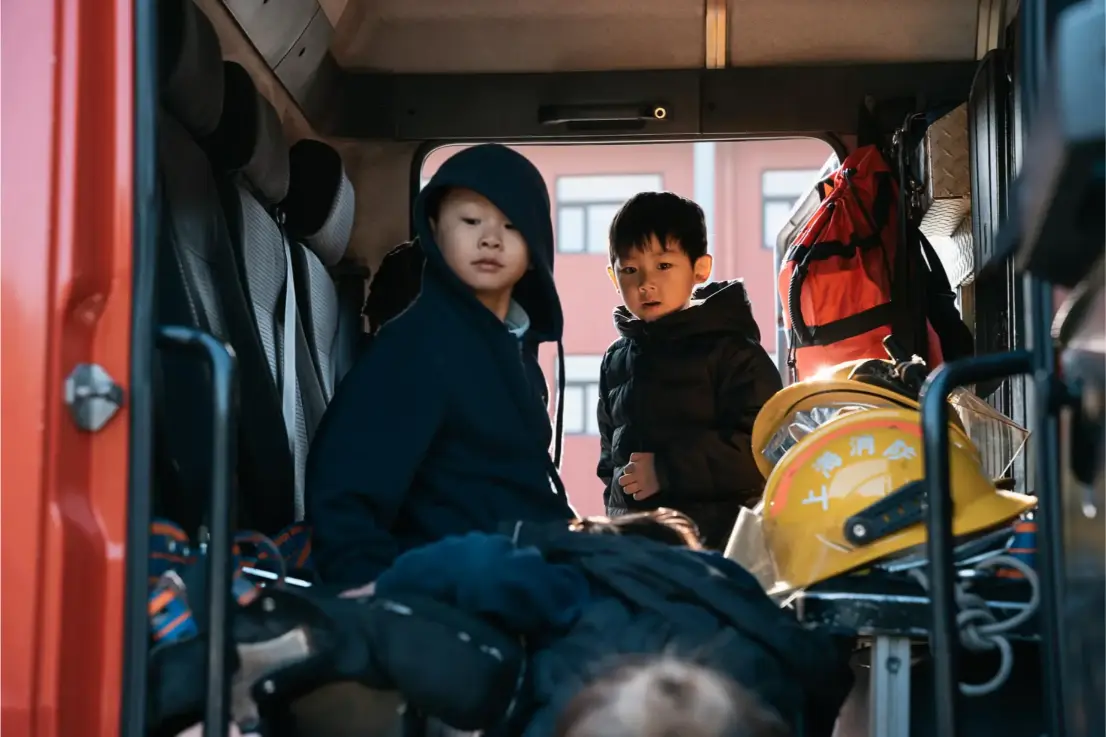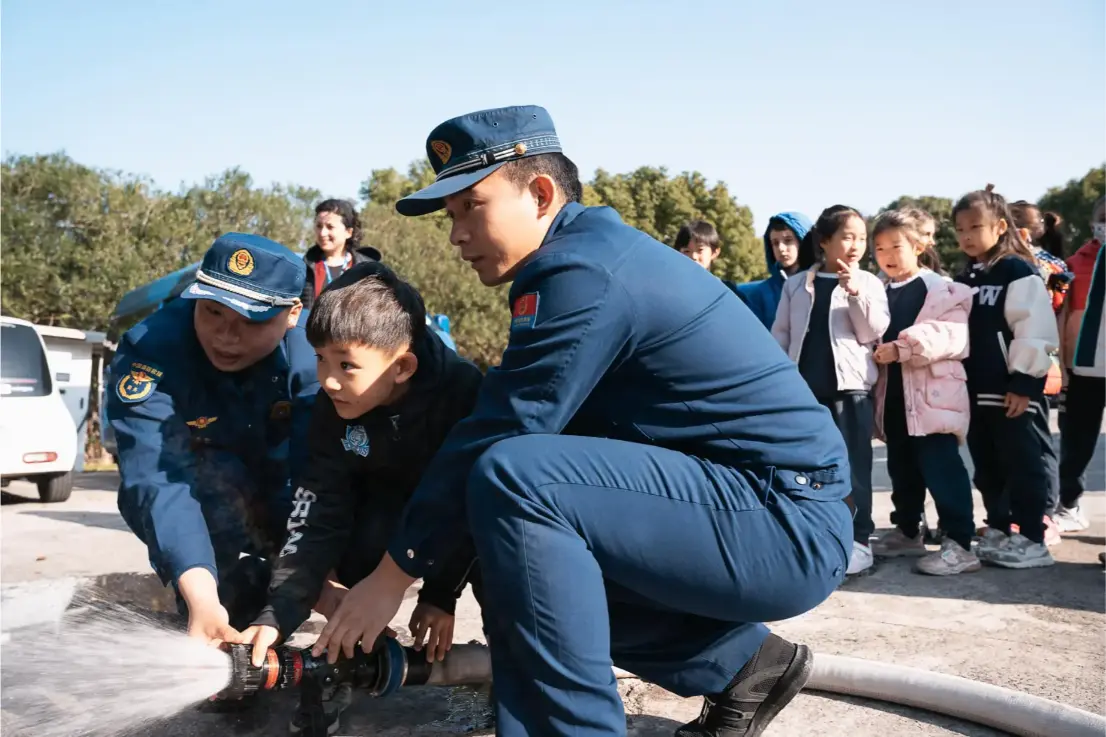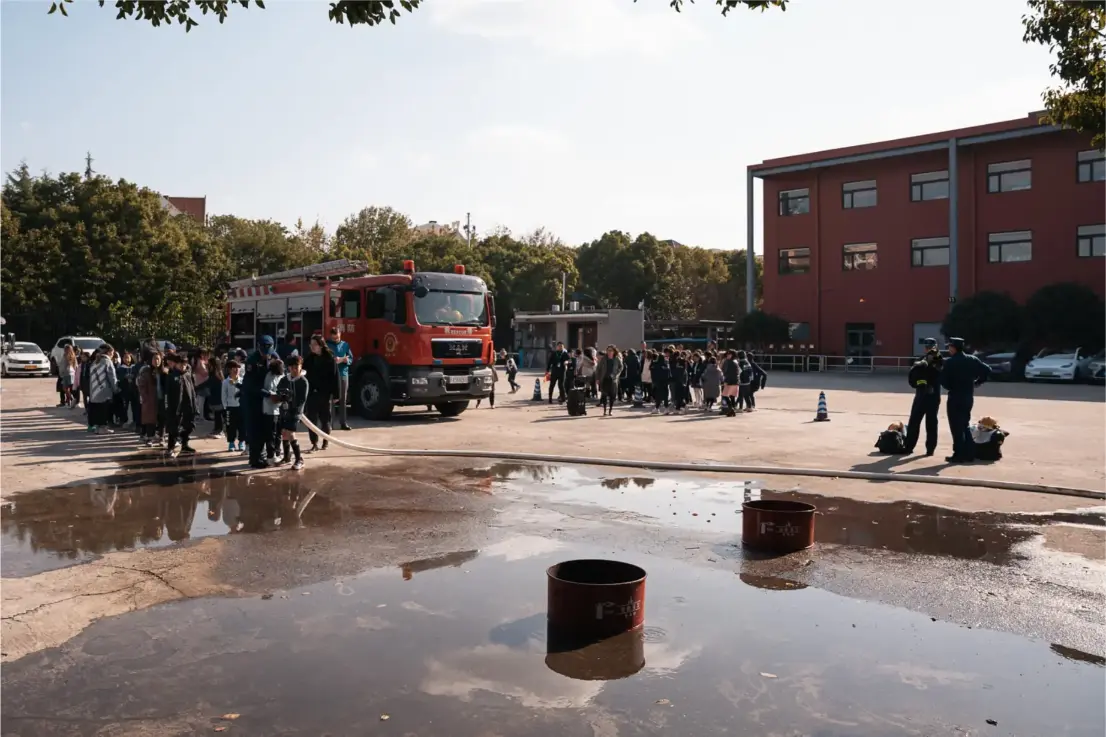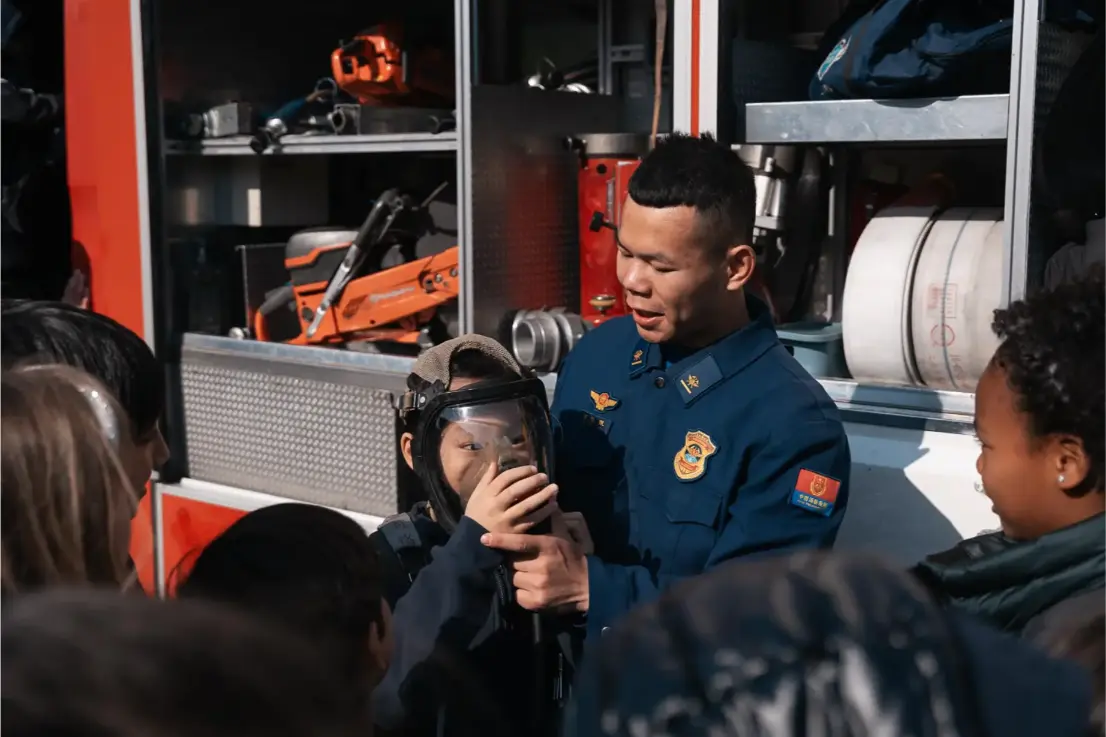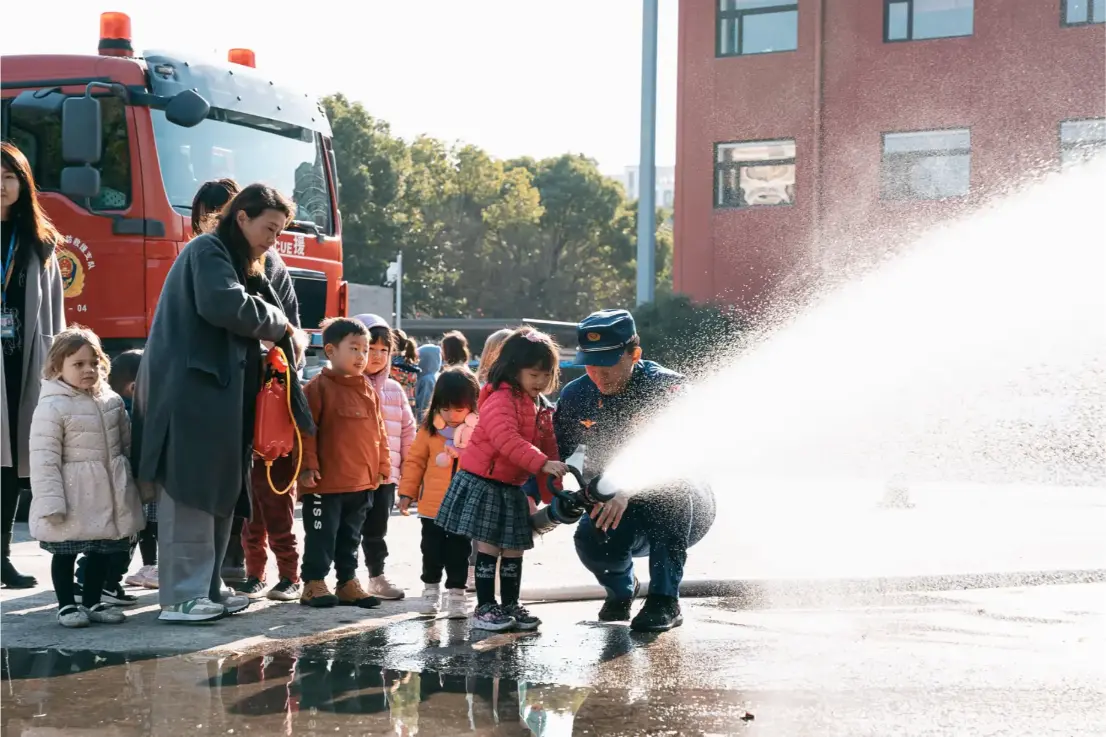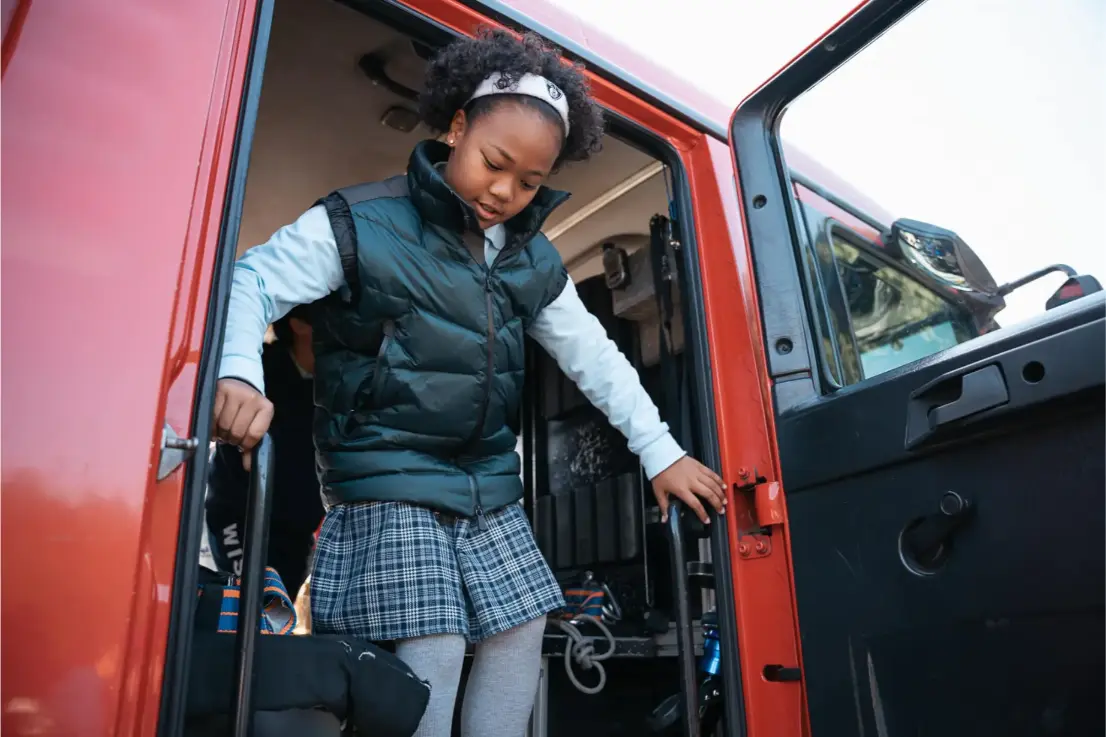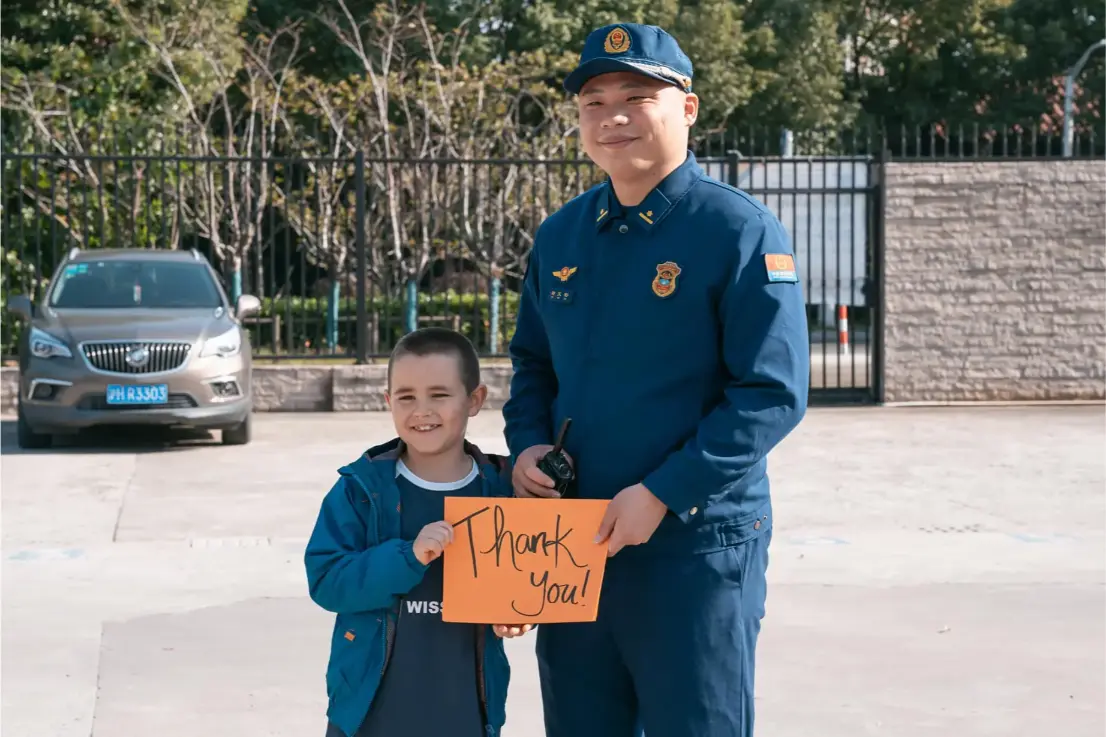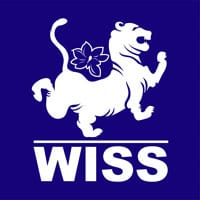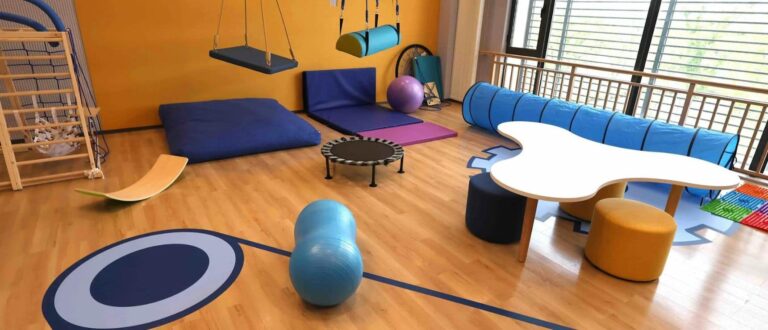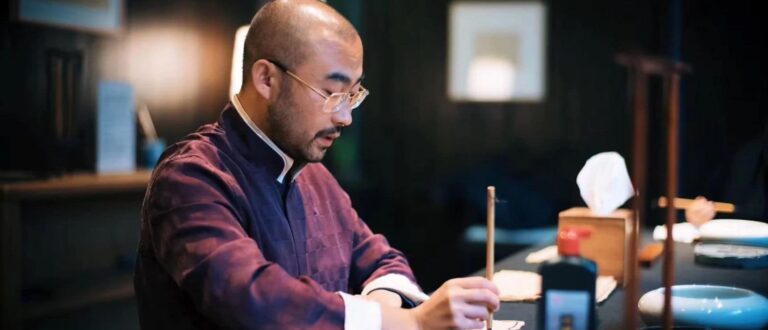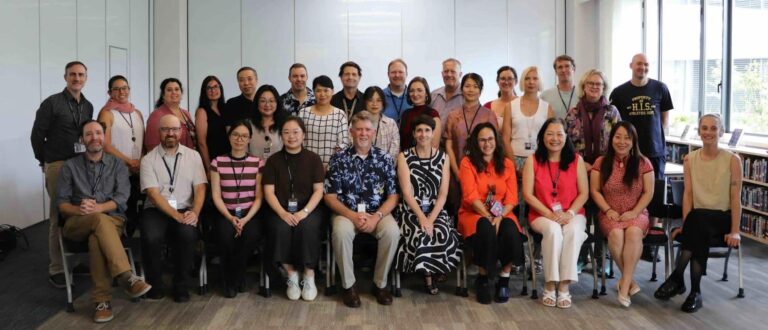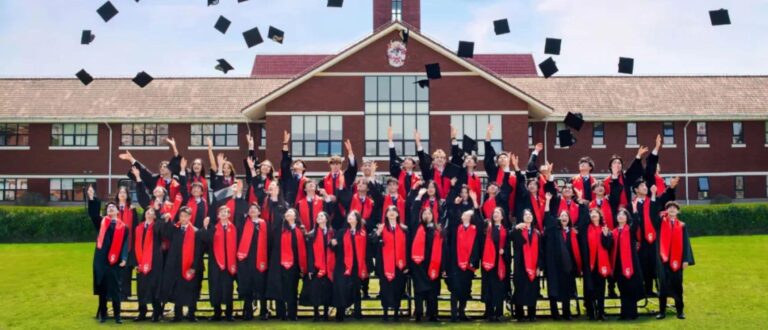At the Western International School of Shanghai (WISS), we are dedicated to forging meaningful connections between our curriculum and real-world experiences. A recent illustration of this commitment is our collaboration with the local fire department, inspired by inquiries from our elementary students. This initiative not only deepened their understanding of safety protocols but also cultivated a greater appreciation for the vital role that community helpers play in our lives.
The Inquiry Cycle and Student Engagement
The connection with the fire department was sparked during a routine fire drill, where students began asking questions about fire safety and the role of firefighters. This curiosity aligns perfectly with our inquiry-based learning approach, which encourages students to explore their interests and seek answers to their questions. As facilitators of learning, our educators recognized this opportunity to bridge classroom learning with real-life experiences. By collaborating with the local fire department, we enabled students to engage directly with professionals who play a crucial role in community safety.
Learning from Community Helpers
When firefighters arrived at WISS in their shiny red fire truck, they brought not just a vehicle but a wealth of knowledge and experience. During their visit, students learned about the roles and responsibilities of firefighters during emergencies. They were taught essential safety tips, such as covering their mouths with a wet cloth and exiting buildings calmly in case of smoke. This firsthand interaction helped demystify firefighters for our youngest learners, allowing them to see these professionals as community helpers rather than figures to fear.
The visit also reinforced previous lessons on community interdependence and roles within society. For example:
- Students learned about community helpers and how various professions contribute to societal well-being.
- Students explored roles and responsibilities, observing how these concepts apply in real-world contexts through their interaction with firefighters.
Enhancing Communication Skills
The firefighter visit provided a platform for students to develop vital communication skills. Engaging in conversations allowed them to practice asking questions and actively listening—key components of effective communication. Moreover, working in groups to discuss their reflections on the visit encouraged collaborative communication, where students learned to express their thoughts clearly and respectfully.
This experience enhanced their verbal communication abilities and prepared them for future interactions in diverse settings. By articulating their thoughts and sharing insights from the firefighters, students are better equipped for future learning objectives emphasizing teamwork and effective communication.
Supporting Future Learning Objectives
The real-world connection established through this initiative supports various future learning objectives:
- Critical Thinking: Students learn to analyze situations critically and understand how to respond appropriately in emergencies.
- Community Awareness: By interacting with local heroes, students develop a sense of belonging and responsibility towards their community.
- Communication Skills: The emphasis on dialogue during the visit enhances verbal and collaborative skills essential for academic success.
Through this structured approach to building real-world connections with student learning, WISS exemplifies how experiential learning can significantly enrich educational experiences. By actively integrating real-life situations into the curriculum, we create opportunities for students to engage with the material in a way that resonates with their lives and communities. This method enhances comprehension and fosters critical thinking and problem-solving skills as students apply theoretical knowledge to practical scenarios.
Moreover, real-world connections promote student engagement by making learning relevant and meaningful. When students see the direct impact of their education on their lives and communities, they are more motivated to participate actively in their learning journey. This engagement boosts knowledge retention and cultivates a lifelong passion for inquiry and exploration.
WISS’s commitment to experiential learning prepares students to become compassionate global citizens equipped to navigate an increasingly complex world. By bridging classroom instruction with real-world applications, we empower our students to understand and address the challenges they encounter, fostering a generation of informed and proactive individuals ready to positively impact their communities.
